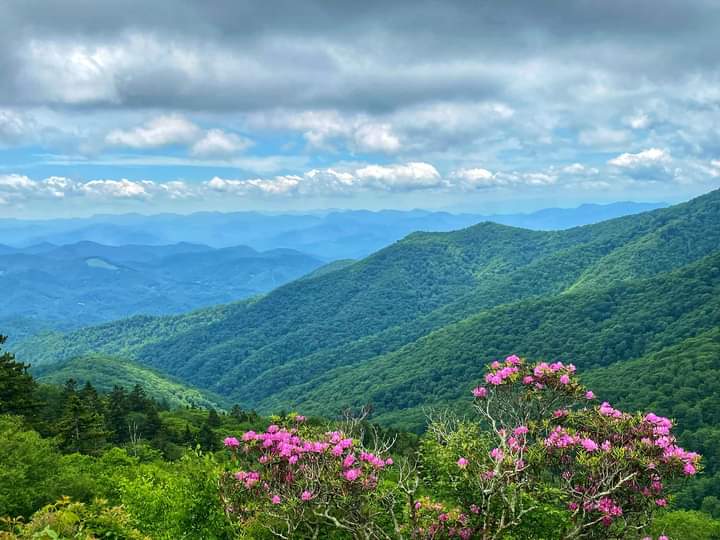Best Scenic Hikes to Mountain Lakes Near Asheville: Explore Serene Waters and Trailside Wilderness
Discover serene mountain lakes just a short drive from Asheville, where scenic hikes blend calm waters with wild terrain. This guide highlights practical routes, trail conditions, and seasonal tips to help adventurers of all levels experience the natural quiet and rugged energy of this trailside wilderness.
Hydrate Early and Often
Start your hike well-hydrated and carry at least 2 liters of water to stay energized on routes where natural water sources aren’t reliable or safe for drinking.
Sturdy Footwear is a Must
Choose hiking boots with solid ankle support to navigate rocky, uneven terrain common around these mountain lakes and reduce risk of injury.
Start Early for Best Light
Morning light unveils best lake reflections and cooler temperatures; avoid midday crowds and heat, especially on longer or exposed trails.
Practice Leave No Trace
Pack out all trash, avoid disturbing wildlife, and keep to designated trails to protect delicate lakeside ecosystems.
Best Scenic Hikes to Mountain Lakes Near Asheville: Explore Serene Waters and Trailside Wilderness
Asheville’s mountain backdrop offers more than just peaks—it harbors quiet lakes framed by dense forests, steep ridges, and rocky outcrops daring you to step off the beaten path. These scenic hikes, ranging from moderate forested strolls to steep climbs that reward with sweeping lake vistas, invite adventurers to engage with wilderness that is both serene and fiercely itself.
Start your journey at Max Patch, where the moderate 3.5-mile loop around a small pond passes through wildflower meadows and forest edges. The trail’s gentle incline and well-marked path make it ideal for casual hikers seeking calm water views without the struggle. Keep an eye on your footing as some sections carry loose gravel and exposed roots.
For those craving more challenge, Art Loeb Trail leads you to the shimmering waters of Shining Rock, a 6.7-mile trek with nearly 1,600 feet of elevation gain. Here, rocky terrain tests your balance and resolve, but the reward appears as the mountain lake mirrors the high ridges and clouds gathering overhead. The forest lets patches of sun through, spotlighting the moss-covered stones and low shrubs daring you onward.
Another gem is Lake Powhatan, accessed via a 3.5-mile loop starting from this quiet mountain refuge. The trail dips and climbs moderately through rhododendron tunnels and pine groves, ending with multiple vantage points overlooking the lake’s glassy surface. Listen for the lake’s edges, where the gentle surf of butterflies and dragonflies commingle with the rustle of the wind across water.
Before you set off on any of these hikes, check the weather patterns—rain can transform dry paths into slick obstacles, and morning fog can cloak the views you came for. Hydrate well and bring layered footwear to match changing terrain and temperature shifts. Sunrise and late afternoon offer the best light and cooler conditions, while midday demands extra sun protection.
Each trail intertwines lakes and wilderness, where water takes on a role beyond scenery—sometimes a welcome rest stop, sometimes an element pushing you forward, shaping the landscape and your journey through it. Remember, nature on these routes is a force fiercely itself: respect trail etiquette, stay on paths, and leave no trace.
Whether you’re embracing the quiet ease around Max Patch Pond or meeting the rugged demands of Shining Rock, these mountain lakes near Asheville present opportunities for connection—with water, with wild places, and with your own pace in the woods.
Nearby Trips
All Adventures
Boat Charters
Water Activities
Adventures near Asheville
Discover the unique and memorable adventures that make Asheville special.
Frequently Asked Questions
Are these mountain lakes suitable for swimming?
Most lakes near Asheville are cold and often have fragile ecosystems or steep rocky shorelines, making swimming less practical. Some are designated protected areas, so check local regulations before entering the water.
Can I bring my dog on these trails?
Dogs are generally allowed but must be kept on leash to protect wildlife and other hikers. Ensure your dog is fit for uneven terrain and carry water for them as lakes may not be safe for drinking.
Are permits or fees required for hiking these trails?
Most trails near Asheville are on public lands like Pisgah National Forest or state parks and do not require permits. However, some trailheads may have parking fees or restricted access during peak seasons.
What wildlife might I encounter near these mountain lakes?
Expect to see white-tailed deer, black bears (rare sightings), salamanders near wet areas, and a variety of songbirds and butterflies. Early morning or late afternoon hikes maximize wildlife activity.
How do I best avoid trail crowds?
Weekdays and early mornings are quieter times. Choose longer or less popular loops instead of heavily trafficked spots. Winter months offer solitude but require more preparation for conditions.
Are the lake views accessible year-round?
Yes, but visibility varies with season and weather. Fall provides the clearest views with colorful foliage, while summer’s dense leaves might obscure some lakeside vantage points.
Recommended Gear
Hiking Boots
Provides stability and protection on mountain trails with loose rock and uneven terrain.
Water Bottle or Hydration Pack
Keeps you hydrated on trails where water sources are limited or untreated.
Layered Clothing
Adjusts to temperature swings common in mountain environments, especially in cooler seasons.
Trekking Poles
Helps with balance on rocky or steep sections, reducing stress on knees.
Local Insights
Hidden Gems
- "Hidden Falls viewpoint on the Max Patch loop offers a quiet waterfall often missed by most hikers."
- "Powhatan overlook features a less-known rocky outcrop with unobstructed lake reflections at sunrise."
Wildlife
- "Watch for hellbender salamanders in streams feeding the lakes; they are elusive and endangered."
- "Black bear tracks have been spotted along less-traveled sections near Shining Rock."
History
"The Cherokee people historically hunted and gathered plants around these lakes, viewing the waters as sacred. Early settlers used these lakes for fishing and small-scale logging operations."
